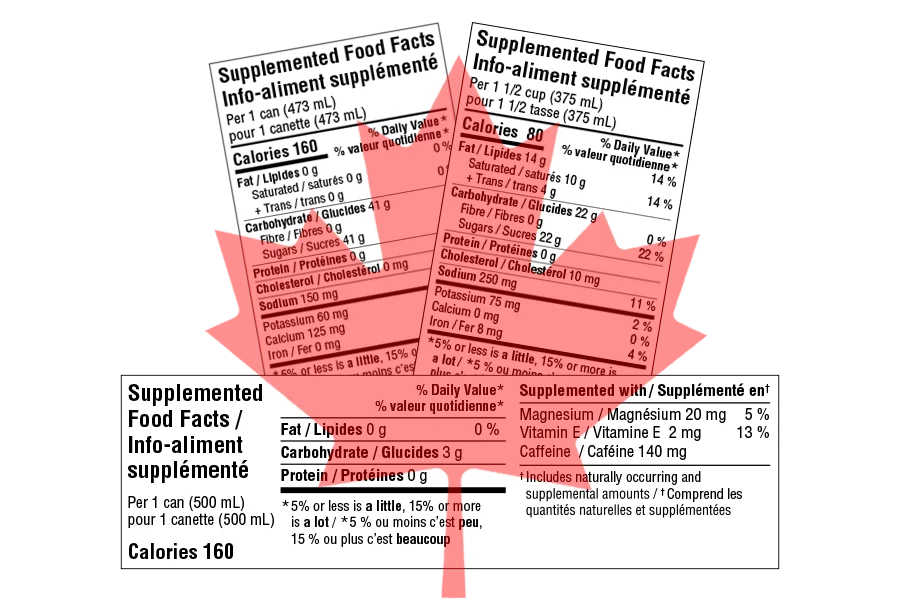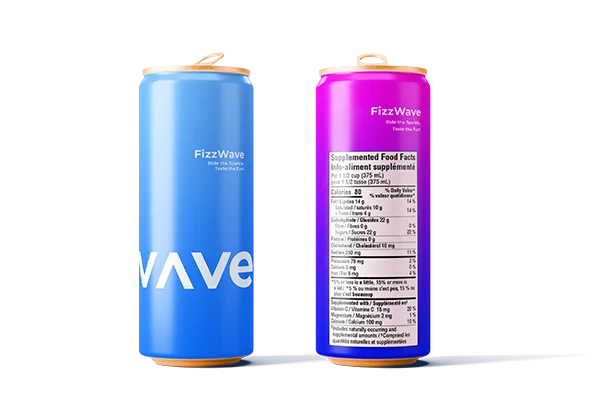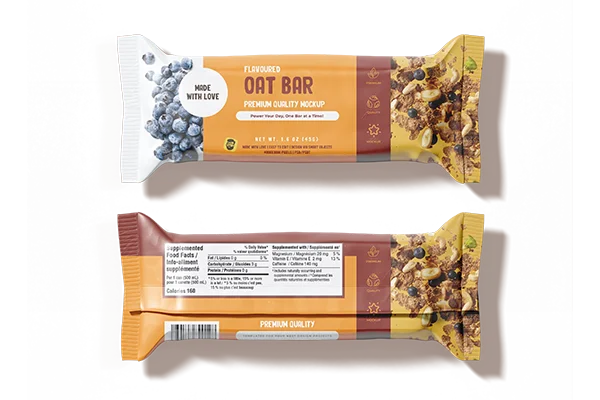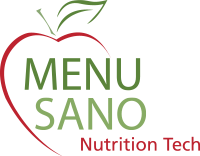
Cancer Recovery Menu Planning for Food Service
The cancer survivor population in North America represents one of the fastest-growing demographics in healthcare, and a critical opportunity for
Front-of-Package Labels now available for Canada.
Supplemented Food Facts Labels now available for Canada.
Supplement Facts Labels are now available for the US, including FSIS labels!


MenuSano is a CFIA-compliant supplemented food facts label generator. Our easy-to-use software helps you seamlessly create supplemented food facts labels.


Using MenuSano, food businesses can easily create CFIA-compliant Supplemented Food Facts labels. The software simplifies the process by providing accurate nutrient analysis and automatically generating labels that meet regulatory requirements. This ensures that your supplemented food products are ready for the Canadian market with full compliance.


MenuSano offers an affordable solution for advanced nutrition analysis and labeling, helping businesses stay compliant and reduce costs.
Our cloud-based software allows you to create and update Canadian-compliant supplement facts labels from any device, anytime, ensuring flexibility and efficiency.
Your data is fully secure with encrypted storage, ensuring your recipes and information are protected, giving you peace of mind.
MenuSano helps you accurately label dietary claims like gluten-free, vegan, and low-sodium, ensuring compliance with FDA and CFIA guidelines.
Food businesses can use MenuSano to add clear cautionary messages to nutrition labels, ensuring compliance with FDA and CFIA safety warnings.
MenuSano allows food businesses to declare allergen information, listing major allergens and cross-contamination risks, ensuring FDA and CFIA compliance.
Cloud-based recipe management
Bilingual supplemented food facts labels
High-definition label formats
Ingredient lists and allergens
Sign up for our free trial and start generating nutrition facts labels.
Transform your cooking with creative and nutritious recipes!

We’ll generate compliant labels so you can focus on what matters. Save time and let us do it for you!

Laboratory testing for food items through our lab partners. Get nutrition testing, labels, and much more!

MenuSano has partnered with Field Eagle to help businesses like you navigate food inspections effortlessly.
Save thousands in label fees with an in-house nutrition label creation system.
Save time and ensure profitability with MenuSano's recipe costing tool.
Easy-to-use software to generate USDA & FDA-compliant supplement facts labels.
Easy-to-use nutrition analysis software that cuts lab testing and consulting costs.
Experiment and see the nutritional value of your dishes as you create in the kitchen.
Generate compliant ingredient lists with our easy-to-use ingredient label maker.
Easy-to-use Canadian front-of-package labels generator, seamless compliance.
Seamless nutrition analysis, food labelling, and compliance into your ecosystem.
Trusted by food businesses and brands for compliance in Canada, the US, and the UK.
Specialized solutions for food manufacturers covering everything from nutritional analysis to compliance and labelling.
Restaurants can use MenuSano to get real-time and accurate nutritional analysis, as well as generate nutrition facts labels.
Cannabis businesses can easily navigate the intricate rules of product labelling and generate compliant nutrition facts labels by simply using MenuSano.
Our software is engineered to meet the unique needs of food caterers allowing them to focus on delivering exceptional culinary experiences.
All-in-one solution for meal kits nutrition analysis, labelling, and compliance.
MenuSano can integrate with supply chain management systems, facilitating real-time updates on ingredient availability, pricing, and nutritional information.
Eliminate complex calculations and estimations. Our Bakery Nutrition Label Menu provides precise, real-time nutritional information customized to your recipes, covering everything from calories to allergens.
Promote healthier choices by generating informative compliant nutrition facts labels. Meals can also be catered to the diverse dietary needs of patients, staff, and visitors.
MenuSano is committed to enriching the educational journey of the next wave of chefs, dieticians, and food entrepreneurs.
Recognizing the vital role schools play in shaping future generations, MenuSano grants you access to our top-notch nutrition analysis software at a special reduced rate if teaching nutrition is part of the curriculum.
An easy-to-use comprehensive solution to nutritional analysis, empowering schools to deliver healthier, well-balanced meals for our future leaders.
MenuSano helps you analyze and balance essential nutrients in pet food, such as protein, fat, fibre, and essential vitamins and minerals, tailored to different species, breeds, and health conditions.
Discover how MenuSano can enhance the nutritional well-being of your residents and set your retirement home apart.







All supplemented foods are required to include a Supplemented Food Facts table (SFFt), which is similar to the standard nutrition facts table. The SFFt features a distinct heading, “Supplemented Food Facts,” follows the same guidelines for listing core nutrients, and displays the total amount of each supplemental ingredient under the section titled “Supplemented with.”
The total amount of each supplemental ingredient listed under the ‘Supplemented with’ heading includes what is naturally present, what has been added as a supplement, and what comes from other sources like flavorings or food additives. For instance, calcium, a required core nutrient, might naturally be in the food and would normally be listed above the ‘Supplemented with’ line. However, if calcium is added as a supplement, it will only be listed under ‘Supplemented with.’ The total shown reflects all sources of calcium in the food.
Some supplemental ingredients are listed with their amount (in grams or milligrams) but don’t have an established daily value because they aren’t essential daily nutrients.
Some supplemented foods have ingredients that could pose health risks if consumed in excess or by vulnerable groups, such as pregnant women or children. These products may display an identifier on the front label, indicating a caution box with important usage warnings on the back or side. Look for the exclamation mark on the front, then check the caution box for guidelines to determine if the food suits you.
Certain food categories are permitted to be supplemented, including bars, fruit drinks, and carbonated water-based beverages. However, foods that are not eligible for supplementation include infant foods, products aimed at children under four years of age, foods for pregnant or breastfeeding individuals, alcoholic beverages, special dietary foods, prepackaged unprocessed or minimally processed foods, and most fortified foods like milk and breakfast cereals. These items are excluded either because different regulations govern them or because there is a higher risk to vulnerable populations, such as young children. For more information on permitted supplemented food categories and the process for adding or modifying categories, please refer to the relevant guidance documents.
A: Health Canada developed the regulations for supplemented foods, while the Canadian Food Inspection Agency (CFIA) is responsible for enforcing them. Both Health Canada and the CFIA can address questions regarding these regulations. You can submit inquiries about the new requirements and their purpose to Health Canada.

The cancer survivor population in North America represents one of the fastest-growing demographics in healthcare, and a critical opportunity for

Diabetes has reached epidemic proportions, affecting over 537 million adults globally, a number projected to reach 783 million by 2045.

Running a profitable food business in 2026 requires more than culinary skill; it demands strategic menu engineering that aligns with

MenuSano is an easy-to-use nutrition and supplement label generator. A cloud-based software that helps businesses in the food industry generate compliant labels. Whether you’re a food manufacturer, restaurant, hospital, or in the cannabis business, MenuSano is tailored to meet your needs.

MenuSano is an easy-to-use nutrition and supplement label generator. A cloud-based software that helps businesses in the food industry generate compliant labels. Whether you’re a food manufacturer, restaurant, hospital, or in the cannabis business, MenuSano is tailored to meet your needs.
© 2026 MENUSANO | 400 University Ave., Toronto, Suite 103, ON, M5G 1S5. 1-866-640-2345. www.menusano.com | Privacy policy | Legal | Terms of use
If you’re not 100% sure yet, start with our free trial and upgrade when you’re ready.
If you’re not 100% sure yet, start with our free trial and upgrade when you’re ready.
If you’re not 100% sure yet, start with our free trial and upgrade when you’re ready.
If you’re not 100% sure yet, start with our free trial and upgrade when you’re ready.
If you’re not 100% sure yet, start with our free trial and upgrade when you’re ready.
If you’re not 100% sure yet, start with our free trial and upgrade when you’re ready.
We take your privacy seriously and will never share your information.